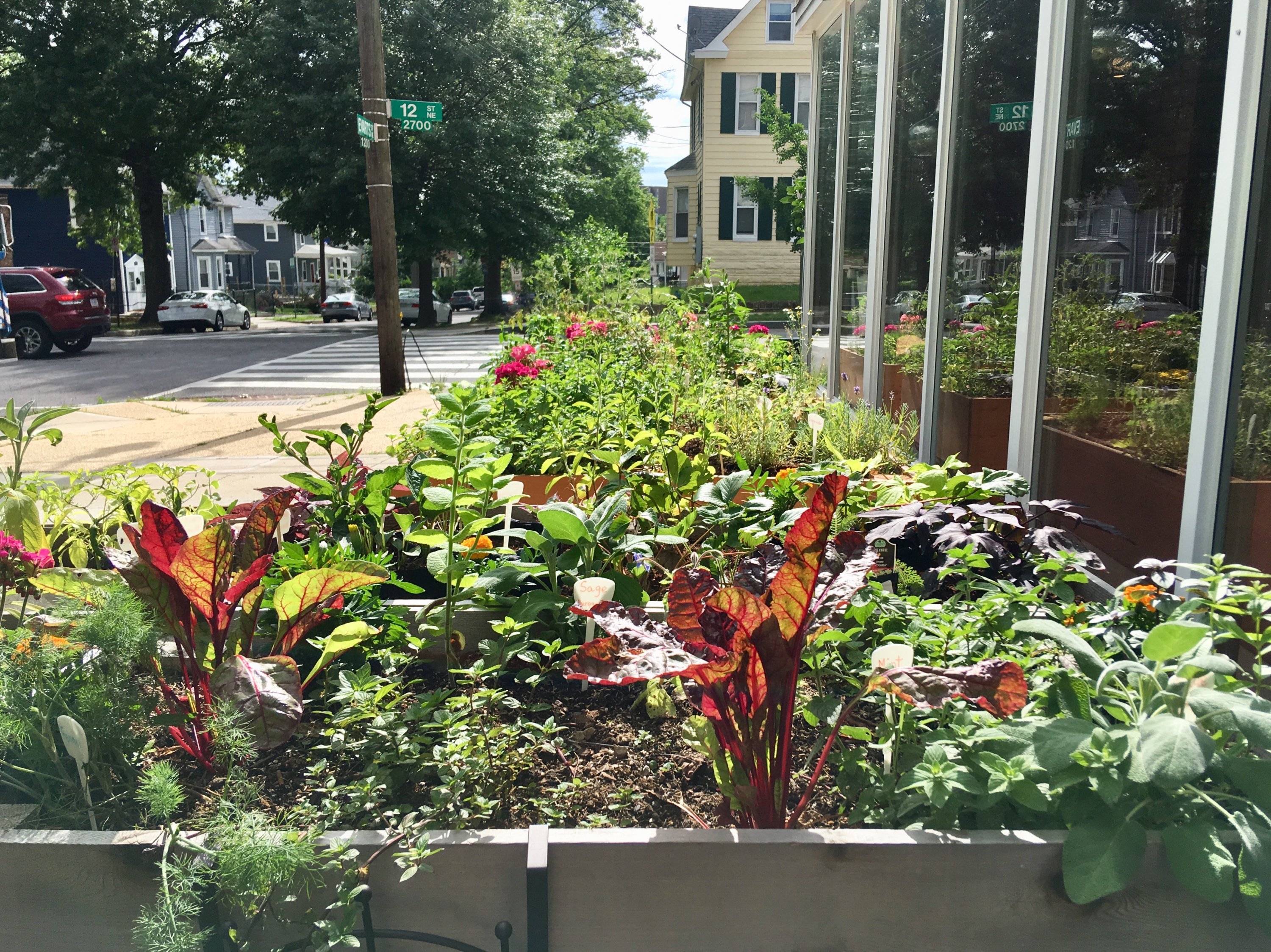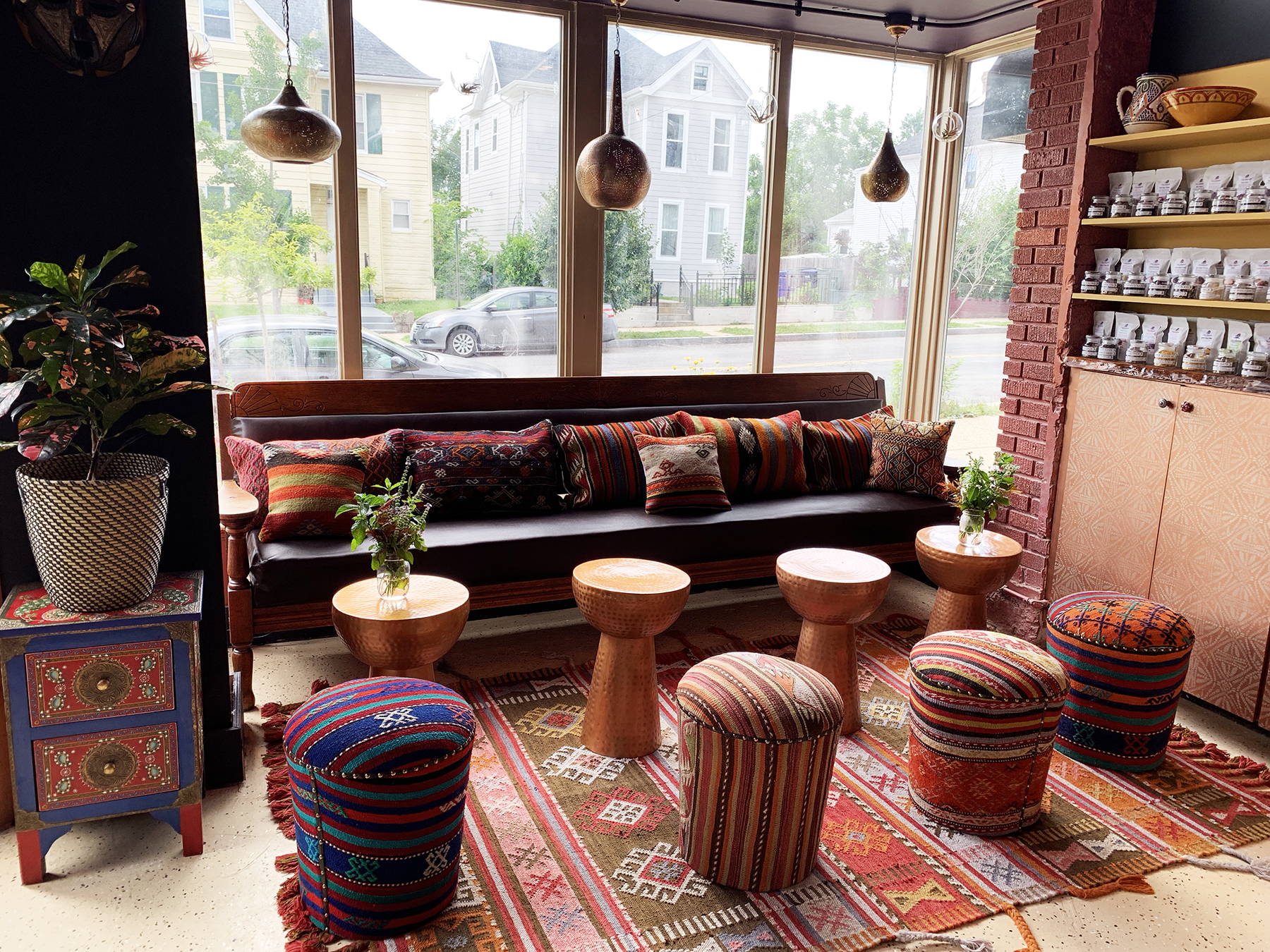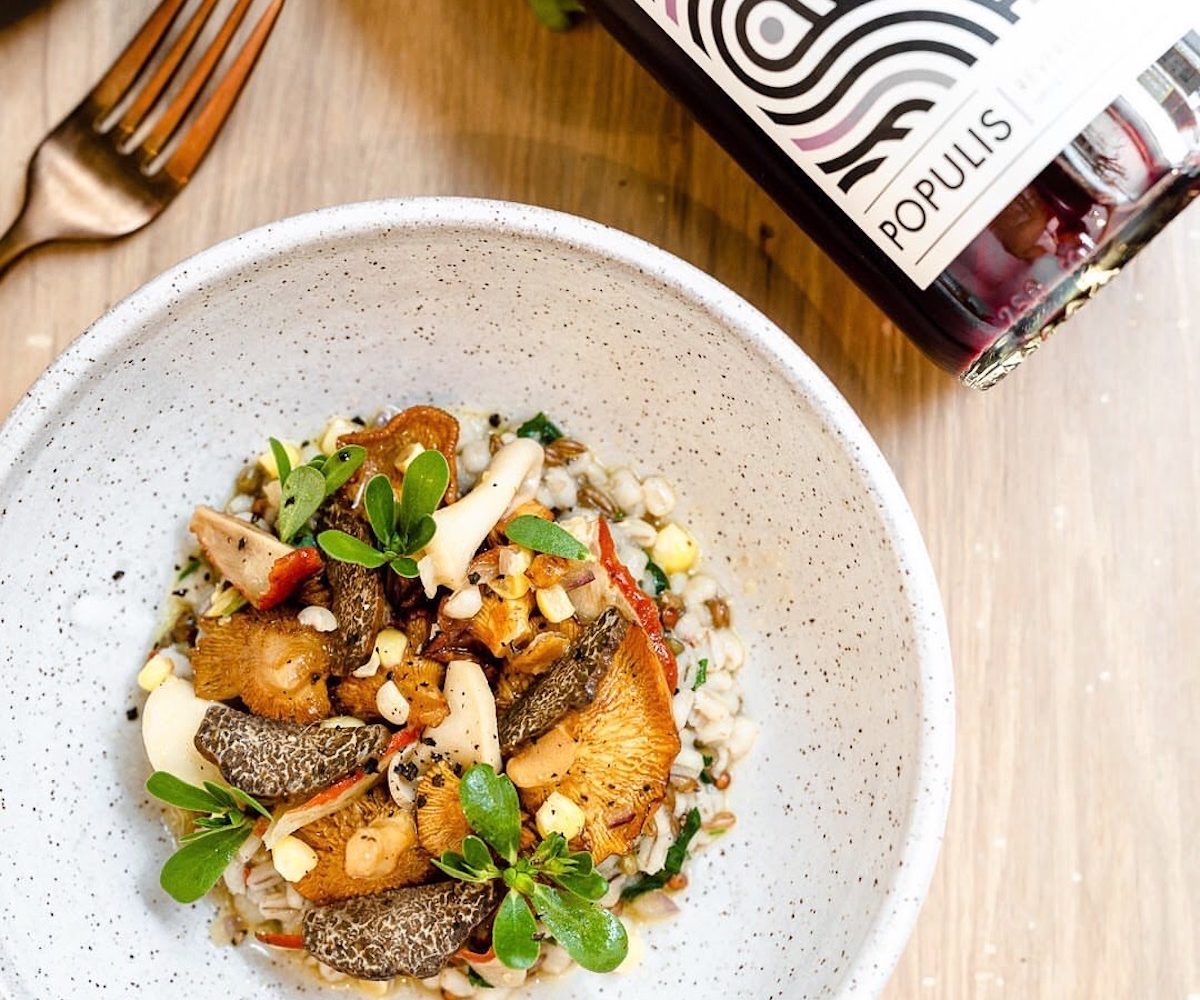After four years in Shaw Calabash Tea & Tonic has expanded to Brookland. The serene, eclectic tea house is focusing on home-grown herbs with over 100 types of plants growing on premises.
Owner Sunyatta Amen, an herbalist, wants to contribute a healthful community space to her neighborhood.
“This is one of the next neighborhoods that’s due a renaissance,” she said. “Brookland was always a vibrant and thriving neighborhood, and we’re happy to be part of that re-energizing of the retail segment.”
The new sun-filled corner store is slightly larger than the Shaw shop but has a similarly cozy feel. The menu has 88 tea varieties and is “95 percent-vegan,” save for some yogurts and pies. Amen plans to offer a mostly plant-based weekend brunch starting this weekend. Look for dishes like high-protein waffles topped with Greek or vegan yogurt or BLTs made with coconut “bacon.”

Outside, over 100 types of edible herbs and plants sit neatly in elevated garden boxes made by students at IDEA Public Charter School. Some of the plants are ready to be muddled into kombucha and steeped in teas. Others haven’t quite found their place on the menu yet. A Jamaican “leaf of life” plant, which can be grown from a single leaf, sits in its own box having just arrived from its home island.
The new shop, like the one in Shaw, takes a medicinal and healing approach to food. Amen’s father was an ethnobotanist, studying how different cultures employ their indigenous plants. Amen helped her parents in their Harlem health food and herb shop growing up in the 1970s. Her experiences formed her belief that drinking and eating are not only about how things taste, but about how they make you feel. She strives to offer alternatives to the typical coffee and alcohol.
“Our job is really to identify what’s going on with folks and offer something,” Amen says. “Whatever that is that may soothe, help, energize, calm them down.”
The name Calabash refers to the tropical gourd, which can be eaten, planted, and used to carry water. “That’s our joy and our hope,” Amen says. “That everyone gets something out of Calabash, that it feeds the village.”
Calabash Tea & Tonic. 1207 12th St., NE; 202-525-5386


















